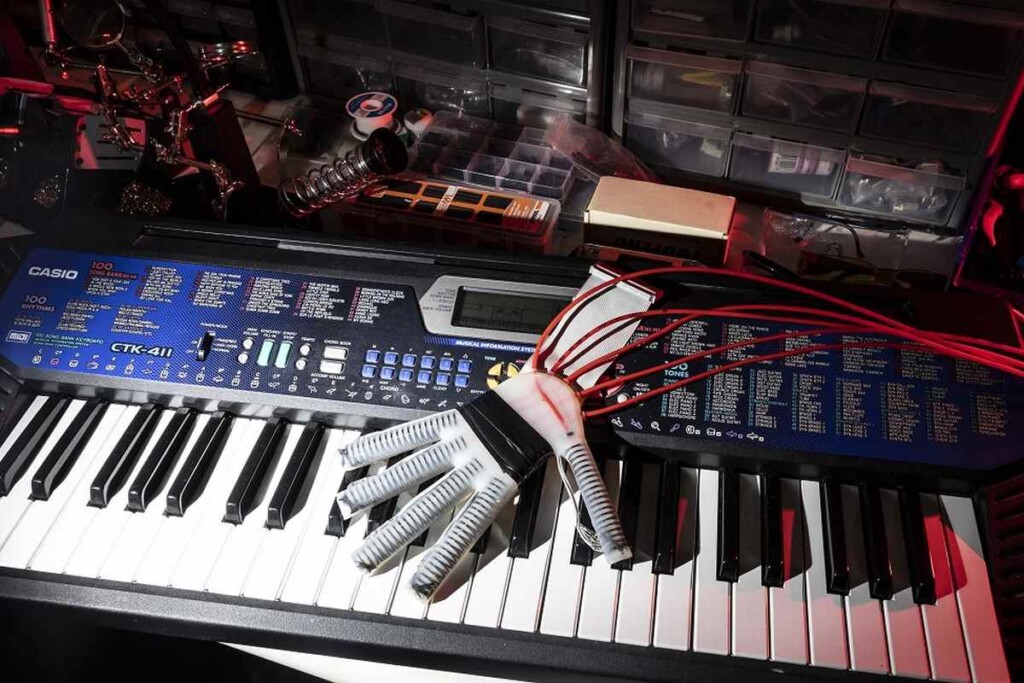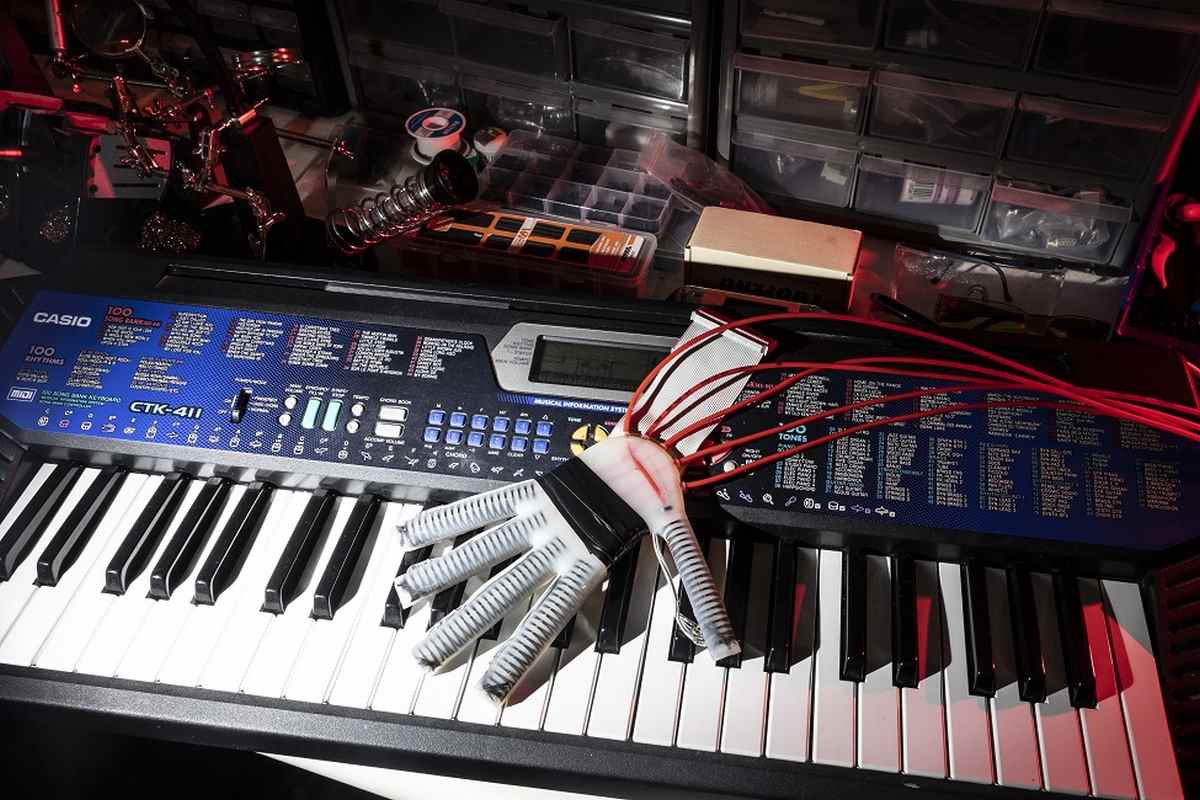
For those who have suffered a debilitating stroke, simple actions like tying shoes or brushing teeth can become a major challenge.
If, however, the person derived a significant amount of joy from life because they could play the piano, such injuries can become all the more significant to recover from.
But hope springs anew with a robotic glove specifically designed for playing the piano. Given life at Florida Atlantic University, the device uses AI to help pianists feel some of what they need to feel in order to play their instrument.
“Combining flexible tactile sensors, soft actuators, and AI, this robotic glove is the first to “feel” the difference between correct and incorrect versions of the same song and to combine these features into a single hand exoskeleton,” writes the university press in an announcement article.
Unlike other prosthetics, this is more like a robotic article of clothing rather than a robotic limb or organ. It uses polysynthetic fibers and hydrogel to encase five actuators that fit together onto a person’s hand.
Using AI to help coordinate the fingers, they programmed the glove to detect twelve different kinds of errors that can occur when striking a piano key, such as when a note is struck too hard, or held too long.
“Playing the piano requires complex and highly skilled movements, and relearning tasks involves the restoration and retraining of specific movements or skills,” said Erik Engeberg, Ph.D., senior author, a professor in FAU’s Department of Ocean and Mechanical Engineering.
MORE NEWS LIKE THIS: Disabled Student Can Pursue Her Dreams of Being a Cellist After Teens Build Her a Specialized Prosthetic
“Importantly, although this study’s application was for playing a song, the approach could be applied to myriad tasks of daily life and the device could facilitate intricate rehabilitation programs customized for each patient.”
The results of a study to coordinate the three different deep-learning algorithms found that with the human subject present, the glove could perform Mary Had a Little Lamb with 97% accuracy, and even without the human manipulation, could do so at 94%.
MORE INVENTIVE PROSTHETICS: This Cheap, Amphibious, 3D-Printed Prosthetic Means That Amputees Can Now Enjoy the Water Without Stress
Clinicians, the engineers suggest, could use the data from the mistakes and successes to pinpoint patient weaknesses in a particular song, of which the glove is theoretically capable of much greater complexity than nursery rhymes.
WATCH the glove do its stuff…
SHARE This Humanistic Approach To Robotics With Your Friends…




















